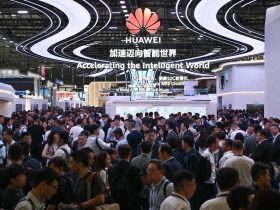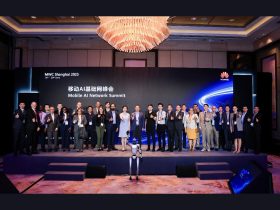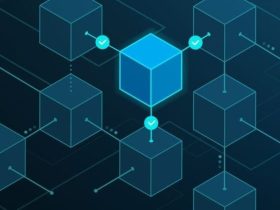Welcome to today’s edition of Cybersecurity Roundup: Partnerships, Funding, and Emerging Threats. In this briefing, we dive into the latest developments shaping the cybersecurity landscape, from workforce challenges and emerging AI risks to key certifications and strategic advancements. As cybersecurity threats grow more sophisticated, the industry is responding with new strategies, standards, and partnerships to stay ahead of the curve.
Security Leaders on the Brink: Industry Struggles with Burnout and Retention
Source: TechRadar, October 16, 2024
Security leaders across the globe are facing increasing levels of burnout, with many considering leaving their roles due to mounting pressures. As cyber threats become more sophisticated and persistent, the demand for rapid response and constant vigilance has taken a toll on cybersecurity professionals. According to recent reports, many leaders in the sector are struggling to maintain a healthy work-life balance, a challenge compounded by the shortage of skilled cybersecurity talent.
The burnout crisis among security leaders presents a significant challenge for the industry. When experienced professionals exit their roles, companies face gaps in expertise and a loss of institutional knowledge that can make them more vulnerable to attacks. This issue also highlights the need for organizations to invest in mental health resources and create work environments that support long-term retention.
For the industry at large, this trend signals a pressing need to address the underlying causes of burnout, including the relentless pace of threat management and a lack of adequate support. Improving the work culture in cybersecurity could be crucial to maintaining a stable workforce capable of responding to the growing cyber threat landscape.
Preparing for Emerging AI Risks: Insights from Unit 42’s Threat Frontier
Source: Unit 42, October 16, 2024
Palo Alto Networks’ Unit 42 has released a detailed analysis on the emerging risks associated with artificial intelligence in cybersecurity. The report explores the dual role of AI in both bolstering defenses and introducing new vulnerabilities. While AI offers powerful tools for threat detection and incident response, it also opens up opportunities for adversaries to exploit machine learning algorithms and automate attacks.
One of the key concerns highlighted is the potential for AI to be weaponized in creating adaptive malware and phishing campaigns that can bypass traditional detection methods. As AI models become more sophisticated, there is a risk of adversaries using them to launch more targeted and complex attacks. This makes it imperative for security teams to not only adopt AI-driven solutions but also understand the potential risks and develop strategies to mitigate them.
The insights from Unit 42 emphasize the need for a balanced approach in leveraging AI for cybersecurity. As organizations integrate AI into their security operations, they must also invest in research and training to understand how these technologies can be exploited. This approach will be critical in staying ahead of emerging threats while maximizing the defensive capabilities that AI can offer.
Treon and Exotec Achieve ISO 27001 Certification: A Step Toward Robust Security
Source: PR Newswire, October 16, 2024
Treon, a technology firm, has strengthened its information security posture by achieving ISO 27001 certification, a globally recognized standard for information security management. This certification signifies Treon’s commitment to maintaining high standards of data protection, demonstrating its readiness to safeguard sensitive information against cyber threats.
In a similar move, Exotec, known for its robotics and logistics solutions, has also attained ISO 27001:2022 certification. This updated certification underscores Exotec’s dedication to continuously improving its cybersecurity framework, ensuring that it meets the evolving requirements for data security. Achieving such certifications is increasingly becoming a competitive advantage in the tech sector, as clients and partners prioritize working with companies that adhere to stringent security standards.
The attainment of ISO 27001 certification by these companies highlights the growing importance of formal security frameworks in the tech industry. As data breaches and cyberattacks continue to rise, businesses that can demonstrate adherence to recognized standards are better positioned to earn trust and secure partnerships. For companies like Treon and Exotec, these certifications not only validate their internal processes but also signal to the market that they are equipped to handle sensitive information securely.
The Essential Role of AI in Networking and Cybersecurity
Source: Globe Newswire, October 16, 2024
A recent report underscores the crucial role that artificial intelligence plays in the fields of networking and cybersecurity. As cyber threats evolve, AI has become a cornerstone for automating threat detection, analyzing vast amounts of network data, and responding to incidents in real time. The integration of AI into networking allows for more dynamic adjustments to traffic patterns, identifying and mitigating threats before they can cause significant damage.
The report also highlights the growing adoption of AI-driven solutions by enterprises seeking to enhance their cybersecurity resilience. With AI, organizations can automate routine security tasks, allowing human analysts to focus on more complex threat analysis. This shift not only improves the efficiency of cybersecurity operations but also helps address the shortage of skilled professionals in the industry.
However, the adoption of AI in cybersecurity is not without challenges. As more companies rely on AI to safeguard their networks, the need for transparency and explainability in AI models becomes critical. Understanding how AI makes decisions is essential for ensuring that these systems are operating as intended and for maintaining trust with stakeholders. As AI continues to shape the future of cybersecurity, companies must strike a balance between leveraging its capabilities and maintaining oversight over its deployment.
Key Takeaways and Industry Implications
- Burnout Among Security Leaders: The high levels of burnout among cybersecurity professionals signal a critical need for organizations to invest in retention strategies and mental health resources. Addressing this issue is vital to maintaining a resilient cybersecurity workforce.
- Emerging AI Risks: Unit 42’s report on the risks associated with AI in cybersecurity emphasizes the dual nature of AI. As companies adopt AI for threat detection, they must also prepare for the potential exploitation of these technologies by adversaries.
- ISO 27001 Certification as a Competitive Edge: Achieving ISO 27001 certification has become a benchmark for companies like Treon and Exotec, showcasing their commitment to high standards of information security. This trend reflects the growing importance of formal security certifications in building trust with clients and partners.
- AI’s Role in Network Security: The adoption of AI in networking and cybersecurity is transforming how companies detect and respond to threats. While AI offers significant advantages, maintaining transparency in AI decision-making is essential to ensure trust and effective deployment.
This edition of Cybersecurity Roundup: Partnerships, Funding, and Emerging Threats offers a deep dive into the pivotal issues and trends shaping the industry. Stay tuned for continued updates and expert analysis on the latest in cybersecurity strategies, regulatory shifts, and technological advancements.















Got a Questions?
Find us on Socials or Contact us and we’ll get back to you as soon as possible.